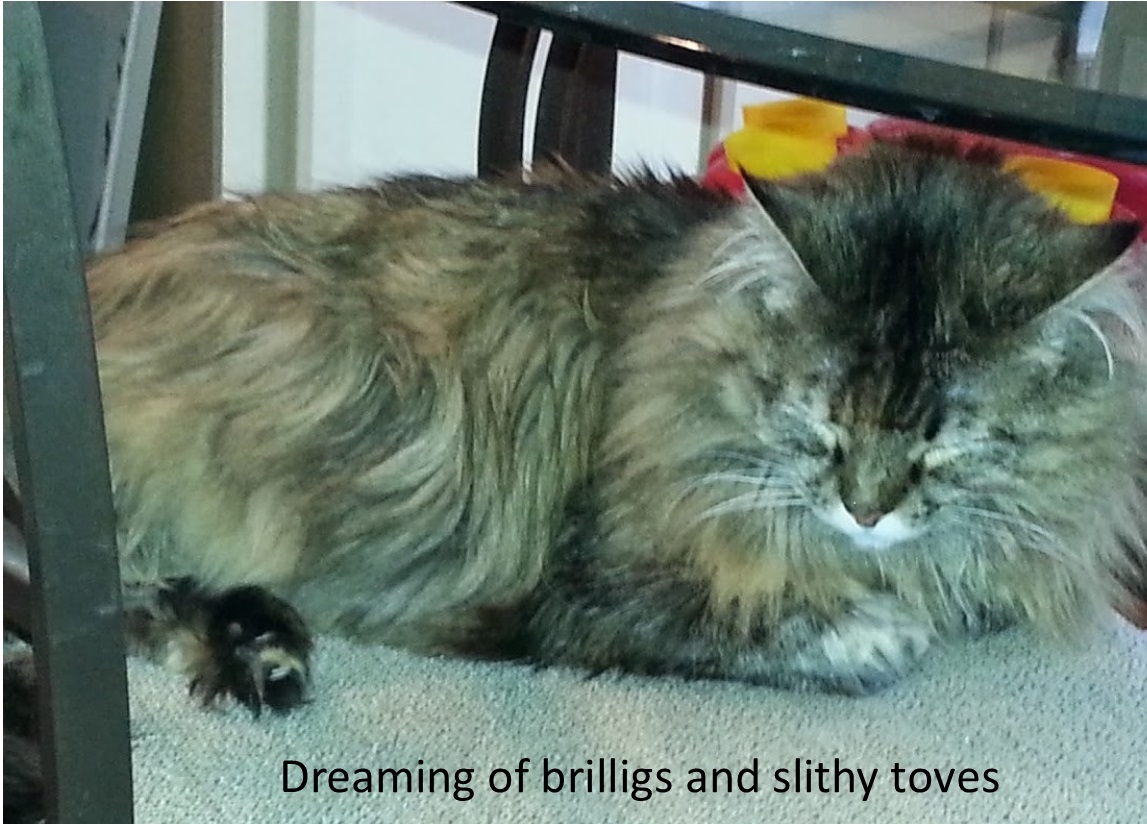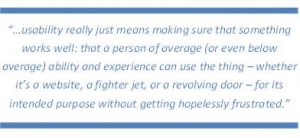Twas Brillig and the Slithy Toves: Or How Many Times Did the Dog Poop Today?
Post by BlogPaws Founder/CEO Yvonne DiVita
When I first started blogging, over 10 years ago, I blogged every day. I wrote about marketing to women who shop online in a little blog called Lipsticking. Using SEO tactics relevant to the day, I rose quickly in the search engines for the term “marketing to women” and dominated that for several years. I was purposeful in my writing… and achieved the results I had set out to achieve.
The title of that blog was taken from chapter two of my book, Dickless Marketing: Smart Marketing to Women Online. In that chapter, I advised readers to be selective; be specific in the use of their words when “selling” to women. My purpose was to draw attention away from the platitudes we often see in marketing, to the specifics of relationship building, which is really the only way to work with women, online or offline.
It’s Word Thing
Note that the title of the book is about those kids of yesteryear, Dick and Jane, who entertained us in the primers we baby boomers used as we learned to read in grade school back in the 1950s. Yes, “Dickless” means… stop marketing to Dick and market to his  sister, Jane. For a while, I even wrote in the voice of “Jane”. I was intent on showing the world that Jane had power, too. It was my purpose.
sister, Jane. For a while, I even wrote in the voice of “Jane”. I was intent on showing the world that Jane had power, too. It was my purpose.
How Many Times Did the Dog Poop Today?
Anyone who’s met me at a BlogPaws conference is well aware of my passion for the written word. Words serve so much more than mere attempts to create conversation. They add value to your business mission and vision by giving it substance. They enhance your marketing with instant images (yes, people SEE what you are talking about), and, they can cause all manner of havoc if you are not wise in your use/choice of them.
Words are tools. Much like the tools you use to complete your daily tasks – writing in Word, computing in an excel document, sending email via Outlook, blogging in WordPress; words exist to make your life easier. In a digital world where we see more written content than ever before, words exist beyond the mundane conversational chatter many people associate with online communication.
Contrary to popular opinion from those early days of blogging, where bloggers might have shared what they ate for lunch, or how many times the dog pooped, or they might have posted a rant against their significant other, for all the world to “see”… today’s bloggers are more often serious about their work. They embrace the craft of writing with a seriousness that speaks of expertise in writing. They study how to be a good writer and they want credit for that. They want respect.
The Walrus and the Carpenter
In the Lewis Carroll poem The Walrus and the Carpenter, from his book Through the Looking Glass, which I once had memorized (the poem, not the book!), the language is English. The words convey meaning. We “get” it, sort of, and don’t get it, a lot. Because there is hidden meaning in the poem, as is often the case in poetry. Meaning is buried in the flow of the words, in the arrangement of the stanzas, in the concept of a walrus walking on the sand with the carpenter, a human being.
It’s up to the reader to decipher what Carroll was trying to share. And, in many, many cases, readers disagree on what the message is – because no one reads these stanzas the same. In fact, readers may have different ideas of what they mean each and every time they read them.
That is the RISK of being too creative for your own good!
“The sun was shining on the sea,
Shining with all his might:
He did his very best to make
The billows smooth and bright –
And this was odd because it was
The middle of the night.”
Don’t Make Me Think!
In the work I do now, I love creativity. I still consider SEO and word choice. But, I must remember the most important part of having a web presence… is usability.
In the early days of blogging and web design, many of us learned the “don’t make me think” rule early on. In essence, it says, your design (and content, I add) has to be understandable to the most basic reader out there.
This quote, from Don’t Make Me Think: A Common Sense Approach to Web Usability by Steve Krug explains it rather well, don’t you think? This, the second edition of his book, was published in 2006 and is well worth a read. It’s entirely online, also.

Your goal, whenever you publish online, for whatever reason you’re publishing online, needs to be to create a site, a post, a message, a video, a photograph, a visible object that passes the usability test… it doesn’t make me think. No sun shining on the sea or brilligs and slithy toves, please. Be creative, but keep your audience in mind.
We’re All Muddling Through
“We’re all beginners under the skin,” Krug says in his book. “Scratch an expert and you’ll often find someone who’s muddling through – just at a higher level.”
I agree that muddling through is a common activity with those of us who aim high – who are working to achieve a level of expertise that sets us apart from the hobbyist. We may not always achieve the correct level of usability in our day to day activity of blogging, but at least we’re trying.
Never stop trying, is my motto. Never stop aiming for that higher bar. Never let others bring you down with their lack of attention to detail or unwillingness to learn. As my mentor advised me on a weekly basis, not so long ago, “Always be in learning mode.”
Jabberwocky
Beware the Jabberwock, my son!
The jaws that bite, the claws that catch!
Beware the Jubjub bird, and shun
The frumious Bandersnatch!
Just save me from the Jabberwock, please!




